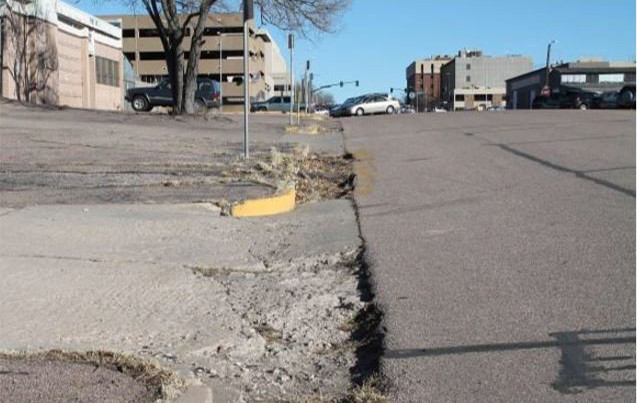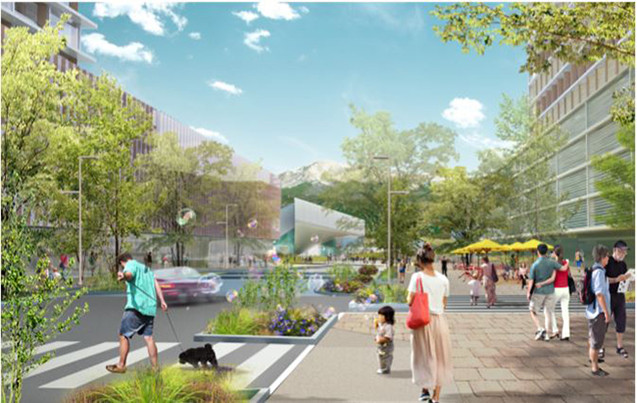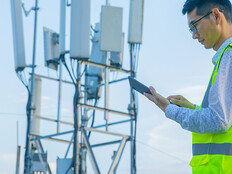Editor's Note: This is the second article in "Street Smarts," which will be an ongoing StateTech series that highlights local stories of smart city projects, from development to execution. Check out the first article in the series on Montgomery, Ala.
Known as Olympic City USA, Colorado Springs is the second-largest city in Colorado. Following in the footsteps of the state’s largest city, Denver, Colorado Springs is undertaking a wide-ranging smart city project known as SmartCOS to improve daily life for its residents and businesses.
“The city of Colorado Springs recognizes that future city life will require leveraging technology and innovation to improve the experience of people living in and visiting our city,” says Bret Waters, deputy chief of staff for Colorado Springs. “As the world becomes more technologically driven, we have the opportunity with our SmartCOS program to test and utilize emerging technologies to improve public services.”
Transparency Moved the Conversation Forward
From the beginning, Colorado Springs officials wanted their smart city initiative to be transparent and inclusive. As such, the city sought input from as many stakeholders as possible, including the mayor, the city council, its municipal utilities board, local businesses, residents and more. One of the first steps was to hire a consultant to help educate not only city staff but the broader community on the benefits of smart cities and what some of the emerging technologies are.
“We wanted as much input as we could get up front. As we roll out these projects either in pilot phase or scale these projects across the city, that will increase the chances of those projects being successful when we have input from the community,” says Ryan Trujillo, innovation and sustainability manager for Colorado Springs.
While the process certainly hasn’t moved as quickly as it could have, that has been by design.
“Our intent is to take a ‘crawl, walk, run’ approach, and we've taken a significant amount of time developing strategies and getting that stakeholder alignment, so that if we do get to a point where we can justify a return on investment for a scalable project, the community is not hearing it for the first time when we get to that point,” Trujillo says.
MORE FROM STATETECH: Montgomery, Ala., embraces the Internet of Things on its journey to becoming a smart city.
Olympics Museum Opened the Door to a Pilot Program
In 2018, the planned redevelopment of the Southwest Downtown area in conjunction with an Olympic museum currently under construction presented Colorado Springs with an opportunity to not only upgrade a previously blighted area but to establish a test bed of sorts for smart city technologies.
“We’ve identified that as our pilot area, where we want to showcase various technologies in that relatively confined space to prove out any type of return on investment, if there is any — to prove the use cases and further engage our public with the hopes of scaling those projects across the city where it makes sense,” Trujillo says.
The Southwest Downtown project redevelopment is currently underway, with much of the streetscape and right-of-way construction to be completed in the first and second quarters of 2020. A variety of smart city deployments will either be completed at the same time or shortly thereafter.
“We’re looking forward to launching several pilot projects, including smart parking, smart streetlights and smart trash and recycling in the Southwest Downtown redevelopment district in the coming year, and foresee that area being a place to explore a range of smart technologies that could eventually scale across the community,” Waters says.
Early Smart Cities Projects Grew After Business Input
In the initial plan developed with the consultant, Colorado Springs identified 11 smart city projects it wanted to tackle. As the city has continued down the road toward becoming a smart city, that plan has evolved, with projects added to that initial list. For example, based on interest from private sector communications companies, the city has put 5G and small-cell communication toward the top of the list.
“Small cell and 5G weren't initially identified, but due to some circumstances with the private sector being interested in making Colorado Springs a 5G city, we've definitely shifted some of the focus to work on that project, so I think it was a great starting point,” Trujillo says. “We are getting pretty active in that space, and there are some telecommunications companies that are very interested in working with us in deploying small cells and 5G. That’s going to have a significant amount of density in the future.”
Most of the Southwest Downtown projects are underway at varying levels, with some still in the design or ideation phase while others are in the request for information or request for proposal stage. Still others, such as smart lighting, are close to actual implementation in the Southwest Downtown test bed, with plans to extend them farther.
An artist rendering of the future of Colorado Springs's Southwest Downtown area. Source: City of Colorado Springs
“We’re also looking broader, outside of Southwest Downtown, at projects we can pilot in the broader Colorado Springs area, and streetlights are definitely one we’re looking at for controllable lights that have the ability to dim, brighten and turn on or off in certain circumstances. I would say that, by the end of this year, we’re looking to at least launch a pilot program related to smart lighting,” Trujillo says. “Smart parking is definitely one application we’re looking to deploy in Southwest Downtown, and if it's successful, to scale that across our entire parking enterprise.”
Colorado Springs is also working with nearby military installations that are implementing smart base technologies. One example is Fort Carson, a U.S. Army installation that has installed one of the largest microgrid battery storage projects in the state.
“We're looking to learn from that and potentially implement some of those projects at our public safety facilities as well. That's another one that we're kind of looking at that may be outside of the Southwest Downtown area,” Trujillo says.
MORE FROM STATETECH: See how edge computing helps smart cities with data collection and processing.
Collaboration Fosters Success in Colorado Springs
While all cities making these implementations face similar challenges as Colorado Springs, the difference is how the city has chosen to tackle them, says Tyler Svitak, executive director of the Colorado Smart Cities Alliance, which provides cities with resources to promote successful smart city projects and works to find opportunities to extend these efforts beyond city boundaries to create regional partnerships.
“The issues they're trying to tackle are not necessarily specific to Colorado Springs. These are issues that many cities are trying to tackle, and I think that many cities are establishing a lot of goals and priorities that they want to work on,” he says. “What's interesting with Colorado Springs is they actually are bringing together all of those issues across departments that would normally find themselves in some sort of departmental action plan. But they’re saying no, the city needs to focus holistically on these issues and leverage technology to solve them.”
By taking this kind of cross-departmental cooperation and collaboration approach, Colorado Springs is getting to the heart of what makes a smart city and likely setting itself up for future success, Svitak says.
“They’re creating this new initiative that crosses all of those departments to deal with them. I think that is what is unique, and what a lot of cities struggle with is just working outside your group, let alone outside your division or let alone outside your department. Those opportunities don't present themselves all the time, whereas smart cities is inherently multidepartmental and collaborative,” he says.











